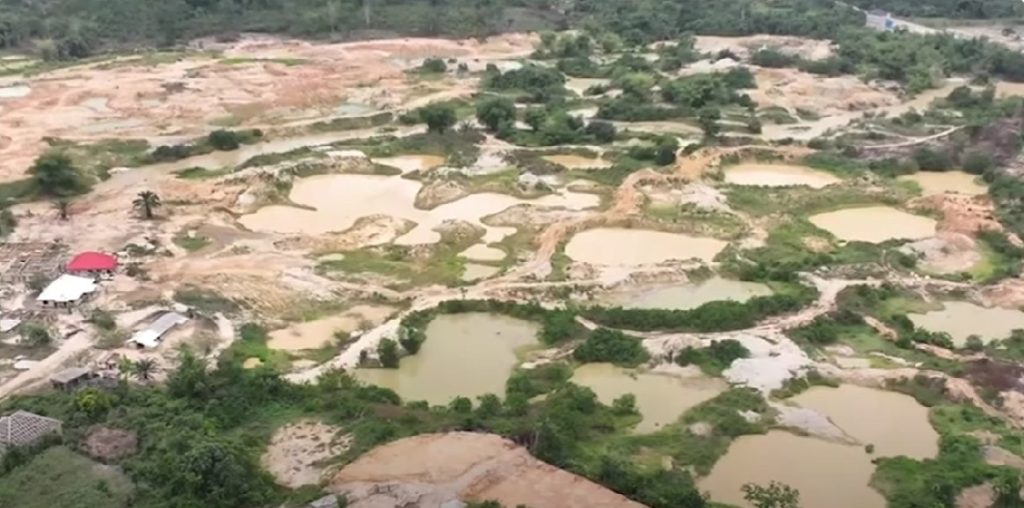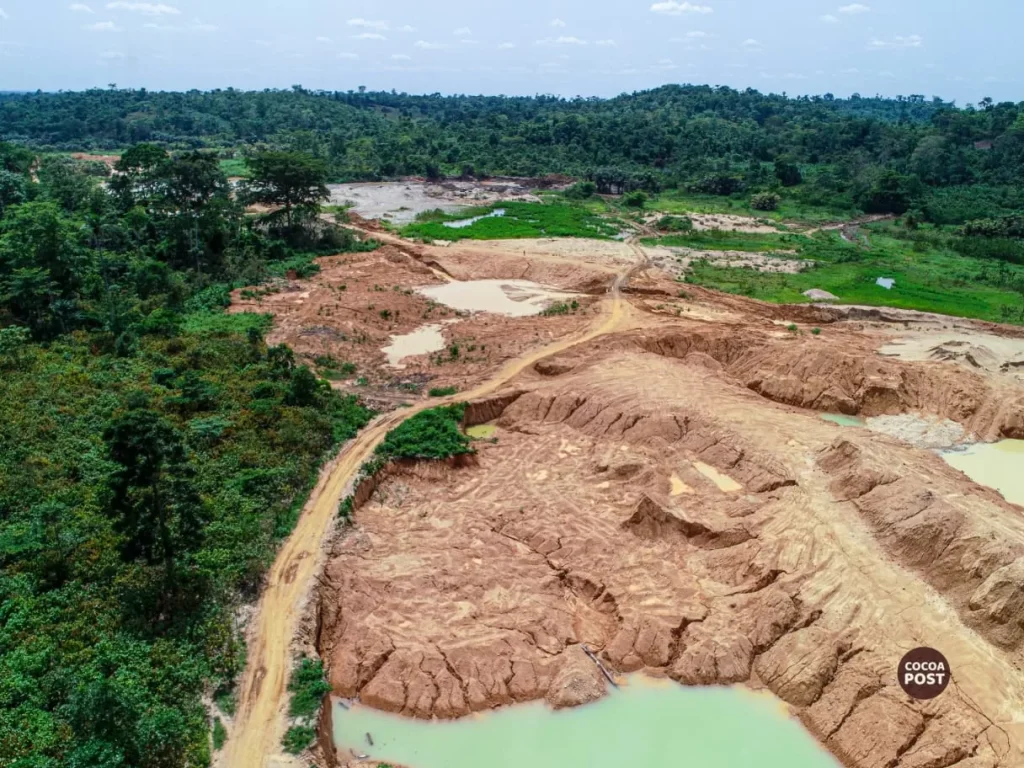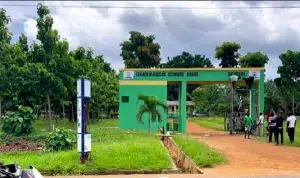The Golden Curse: Ghana’s Struggle with Galamsey
By Seth Yeboah
Galamsey, a term derived from the English phrase “gather them and sell,” refers to illegal small-scale gold mining in Ghana. This practice has become a significant concern for the country, with far-reaching environmental, social, and economic implications.
The Allure of Gold
For many Ghanaians, galamsey offers a means of survival in a country plagued by unemployment and economic instability. A seamstress from the Ashanti Region revealed that she earned more in a month from galamsey than in a year of sewing, highlighting the financial allure of this practice. However, the short-term gains come with devastating long-term consequences.

Environmental Devastation
Galamsey has ravaged Ghana’s forests, water bodies, and soil. The use of toxic chemicals like mercury and cyanide in the mining process has polluted rivers, streams, and lakes, posing serious health risks to both miners and local communities. Deforestation, soil erosion, and habitat destruction are just a few of the environmental impacts of galamsey.

Health Risks
Miners and nearby residents are exposed to hazardous chemicals, leading to mercury poisoning, respiratory problems, and other health issues. Children and pregnant women are particularly vulnerable to these health risks. In fact, mercury poisoning can cause neurological disorders and stunt crop growth, affecting not only human health but also agricultural productivity.
Social Consequences
Galamsey has also led to social problems, including child labor, prostitution, and the exploitation of vulnerable individuals. Many young people abandon their education to engage in galamsey, sacrificing their future prospects for short-term financial gains. This phenomenon has contributed to a domestic brain drain, with talented individuals wasting their potential in illegal mining activities.
Economic Implications
The galamsey industry operates outside the formal economy, depriving the government of revenue and undermining the country’s economic development. Large-scale mining companies also struggle with illegal mining encroaching on their lands, creating tensions and reducing productivity.
Government Response
In response to the illegal mining crisis known as galamsey, the Ghanaian government is taking action by decentralizing the licensing process. They are collaborating with local authorities to grant permits and are also advocating for sustainable livelihoods and reforestation as alternatives to illegal mining activities.
Recent initiatives have involved seeking support from the media, urging Parliament to come together in this battle, and proposing the repeal of laws that benefit mining operations. The government recognizes that unemployment fuels the galamsey issue and is focused on generating alternative sustainable job opportunities.
The Ghanaian government has launched initiatives to combat galamsey, including the National Plan for Galamsey Eradication and Community Support. However, enforcement remains a challenge, and corruption often hinders efforts to regulate the industry.
Community-Led Solutions
Empowering local leaders, youth, and women to lead the fight against galamsey is crucial. Community-led initiatives can educate residents about the risks and promote sustainable alternatives. Public awareness campaigns and grassroots advocacy can help shift attitudes toward illegal mining.
The Way Forward
Tackling the galamsey issue demands a comprehensive strategy that harmonizes economic progress with environmental and social safeguards. Collaboration among the government, civil society, and local communities is essential to establish sustainable livelihoods, enforce regulations, and encourage responsible mining practices. Through these efforts, Ghana can effectively utilize its natural resources to stimulate economic growth while protecting its environment and ensuring a better future for generations to come.








